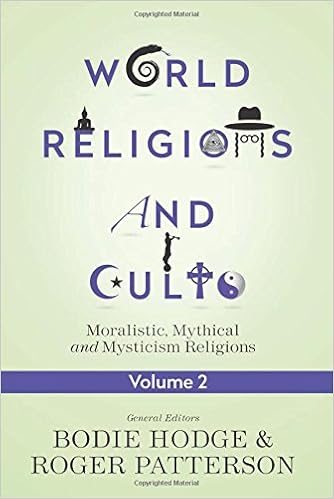Rational Justification
How are our beliefs justified? What counts as a rationally justified belief and what counts as an irrational claim?
In order for a belief or claim to be rationally justified, it must have justifying reason behind it. However, as many have pointed out, this seems to lead to problems with basic beliefs that we all take for granted, such as universal, invariant noncontradiction. What reason could anyone have for believing in noncontradiction? It doesn't seem possible for it to be a conclusion, because it must be presupposed in order to come to any conclusion. But how can justifying reason be behind a claim of noncontradiction if it has to be presupposed to come to any conclusions? Noncontradiction seems like an arbitrary assumption!
Many people have philosophically (though almost never practically) embraced solipsism as a result of the difficulty of first principles (or first premises, or ultimate presuppositions).
It seems to me that there are three and only three methods by which beliefs can be rationally justified.
Initially, either the justifying reason behind my belief is my own reason, or it is someone else's reason. There are no other options.
Someone Else's Reason
1. Imputation
If it is someone else's reason, then the belief or claim has been imputed into me, and its justification (or lack thereof) goes along with it.
Imputation, the first of the three methods, is seen when we recognize that the premises of a calculator are rationally justified. The calculator's reason didn't justify its premises: they were justified in the mind of its creator.
My Reason
On the other hand, if it is my reason, it is either my reason by means of my will, or it is my reason regardless of my will. Again, there are no other options.
2. Authorship
If it's my reason by means of my will, then I'm the author of the fact and also the author of the claim. All of C.S. Lewis' claims about Tumnus the Faun are rationally justified, because Lewis' will simply is the authority regarding the facts about Tumnus. Authorship is the second method.
3. Discovery
Finally, if it is my reason regardless of my will, then I have engaged in discovery. Discovery is the third and final method. Discovery always involves conclusions based on prior premises. If the premises are not justified, the conclusion likewise is not justified.
Minting the Coin or Passing the Buck
It seems to me that these are literally the only three possible methods for rational justification of a claim.
However, two of these methods (imputation and discovery) simply kick the can down the road. Imputation takes an already-justified claim and moves it from one claimant to another; while discovery takes already-justified claims and uses them to formulate a new claim.
Authorship is the only method of the 3 that actually provides ultimate rational justification for a claim: the justifying reason behind it.
Therefore, it seems to me that our first principles -- if rationally justified -- are imputed to us by their author. And, the author of our first principles is the willful author of universal invariant truths, and therefore the author of time and space.
In other words, if you are rational, then God exists.
More of My Writing on the Subject

Gilbert Guttlebocker, Defender of Dragons
Riveting, yet absurd; romantic, yet innocent; Gilbert Guttlebocker, Defender of Dragons is a little Roald Dahl, a little Harry Potter, and a little Chronicles of Narnia, all rolled into one. Timothy McCabe collaborates with the great Benedict Ballyhoot to bring you the novel of the century!

In Printed Form
Along with numerous other authors including Don Landis, Bodie Hodge and Roger Patterson, Timothy McCabe contributes analyses of various world religions and cults in this volume from Master Books.
Other Writings
"What happens to people who don't accept what you claim?"
Nothing happens to people who don't accept what I personally claim. However, Jesus made some striking statements about those who do not accept HIS claims. He taught that the two greatest commandments were to love the Lord God with all your heart, soul, mind, and strength; and to love your neighbor as yourself. (Matthew 22:37-39) In Luke 16, Jesus tells a story about a rich man and a beggar named Lazarus.
Continue reading...
"Why does the creator of the entire universe get the value of pi wrong (2 Chron 4: 2)?"
God didn't get Pi wrong. Rather, He rounded to the nearest cubit. "Also he made the cast metal sea, ten cubits from brim to brim, circular in form, and its height was five cubits and its circumference thirty cubits." -2 Chronicles 4:2 If we were to write down the whole value of Pi, or in this case, Pi times 10, we would never finish writing. Therefore, whenever anyone, Creator of the universe or not, writes down the value of Pi for us to read, it is always rounded.
Continue reading...
"Why am I here? Why do I exist? What is my purpose?"
According to Christ, the greatest commandment is to "love the Lord your God with all your heart, with all your soul, with all your mind, and with all your strength" (Mark 12:30). As our greatest command, it is the thing we most ought to do. We exist to love God. How are we to love God? What exactly does that mean? The apostle John tells us that love for God is to obey Him (1 John 5:3).
Continue reading...